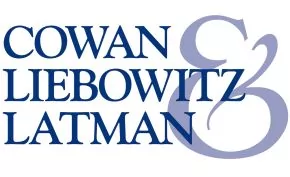Restaurant names may be deemed confusingly similar even though one is in English and the other is in a foreign language with the same meaning.
Crystal Cruises, LLC filed two intent to use applications to register for "restaurant services" different versions of a mark consisting of six Chinese characters translated into English as SEAHORSE JAPANESE CUISINE.
![]()
The Examining Attorney refused registration based on a likelihood of confusion with the registered mark SEAHORSE for "bar, lounge services" owned by a Tennessee company named J. Alexander's, LLC.
The Applicant appealed to the Trademark Trial and Appeal Board (TTAB), which affirmed the refusal to register these Chinese character marks.
The TTAB applied the "doctrine of foreign equivalents," which it characterized merely as a guideline rather than an absolute rule, to be applied when it is likely that the ordinary American purchaser would stop and translate the word from a common, modern language like Chinese into its English language equivalent.
The Applicant argued that the Chinese marks differed from the English equivalents in appearance and sound. But the TTAB determined that the connotation and commercial impression of the marks were similar in that the SEAHORSE element was dominant in both marks and the remaining words in Applicant's mark were generic for, or descriptive of, the type of food served.
The Applicant also argued that the restaurant services differed from the bar and lounge services, but the TTAB said they both involve food service, and the application was not limited to Japanese food restaurants.
In re Crystal Cruises, LLC, Serial Nos. 86950812 & 86950841 (T.T.A.B. December 6, 2018).
Author's Note: This case illustrates that in choosing a restaurant name, you should search to avoid any name either registered or in use, in English or another language, that might have the same meaning. Further, if you are using or have registered a restaurant name, you should engage a trademark watching service to learn of any applications filed for similar names in English or their equivalent in another language.
03.19.2019
The content of this article is intended to provide a general guide to the subject matter. Specialist advice should be sought about your specific circumstances.
We operate a free-to-view policy, asking only that you register in order to read all of our content. Please login or register to view the rest of this article.


